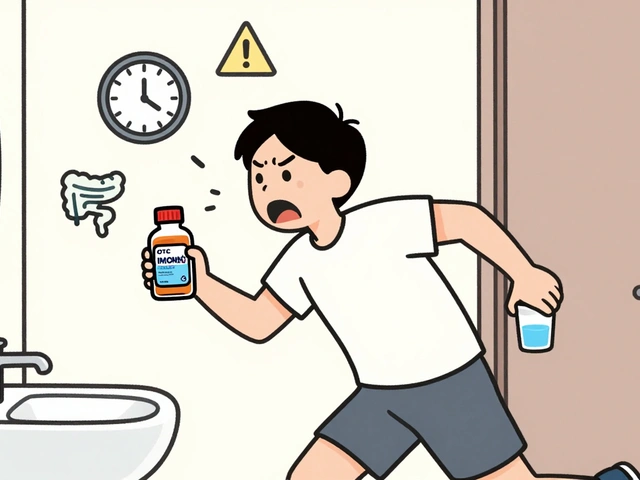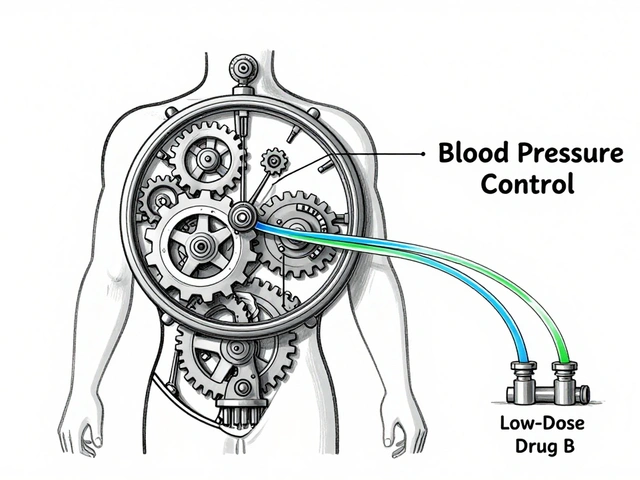Coping Strategies: Practical Tips for Anxiety, Sleep, and Medication Side Effects
Feeling overwhelmed by stress, sleep problems, or meds that cause side effects? You don’t need a dramatic life change to feel better. Small, consistent steps make a big difference. Below are clear, practical strategies you can start using today, whether you’re dealing with panic, insomnia, or medication hassles.
Quick tools to calm your mind
When anxiety spikes, use grounding and breathing. Try the 4-4-4 breathing: breathe in for 4 seconds, hold 4, breathe out 4. Repeat 4 times. If breathing feels hard, do a 5‑sense grounding: name 5 things you can see, 4 you can touch, 3 you can hear, 2 you can smell, 1 you can taste. Both techniques redirect your attention fast.
For frequent worry, schedule a 15-minute "worry time" each day. Write down worries, then set them aside. This trains your brain to contain worry instead of carrying it all day. Use short distraction breaks—walk, wash dishes, or do a 3-minute stretch—to break a negative thought loop.
Dealing with sleep problems and tiredness
Fixing sleep often fixes mood. Keep a regular sleep schedule: wake and sleep within the same hour every day, even weekends. Wind down 30–60 minutes before bed—no screens, dim lights, and a quiet routine like reading or gentle stretches. Avoid big meals, caffeine, and intense exercise within 2–3 hours of bedtime.
If you wake up at night and can’t sleep after 20 minutes, leave the bedroom. Do a calm activity under soft light and return only when sleepy. If sleep problems persist, ask your doctor about a sleep assessment or CBT-I (cognitive behavioral therapy for insomnia). It’s often more effective than sleeping pills.
Managing medication side effects
Side effects can derail daily life, but you don’t have to tolerate them silently. Keep a simple symptom log: note the time you take meds, what you ate, and any new symptoms. This helps your doctor spot patterns. Never stop or change doses on your own.
Ask if timing changes, dose adjustments, or switching to a different drug can reduce side effects. Pharmacists can flag interactions and advise on taking meds with food or at bedtime. If a medicine makes you feel severely dizzy, short of breath, or suicidal, seek urgent medical help.
Daily habits that build resilience
Move your body regularly—20–30 minutes of walking most days improves mood and sleep. Limit alcohol; it disrupts sleep and can worsen anxiety. Connect with a friend or support group once a week. Small social steps protect you more than you expect.
If you’re a student or have a busy job, use campus or workplace health services early. They can help with sleep, study stress, or medication advice without long waits. If your symptoms grow or don’t improve after a few weeks, ask for a review with your doctor or a mental health professional.
These tips aren’t a magic fix, but they are practical, low-risk moves you can use today. Try one change at a time, track how you feel, and keep what helps you most.

During my pregnancy, I experienced frequent vomiting and found some helpful coping strategies and remedies to ease the discomfort. One of the most effective tips was to eat smaller meals more frequently throughout the day, as opposed to three large meals. I also found relief by sipping on ginger tea and taking vitamin B6 supplements, both known for their anti-nausea properties. Staying hydrated was crucial, so I always kept a water bottle nearby and took small sips throughout the day. Lastly, getting fresh air and practicing relaxation techniques, like deep breathing, helped me manage my nausea and made the experience more bearable.






